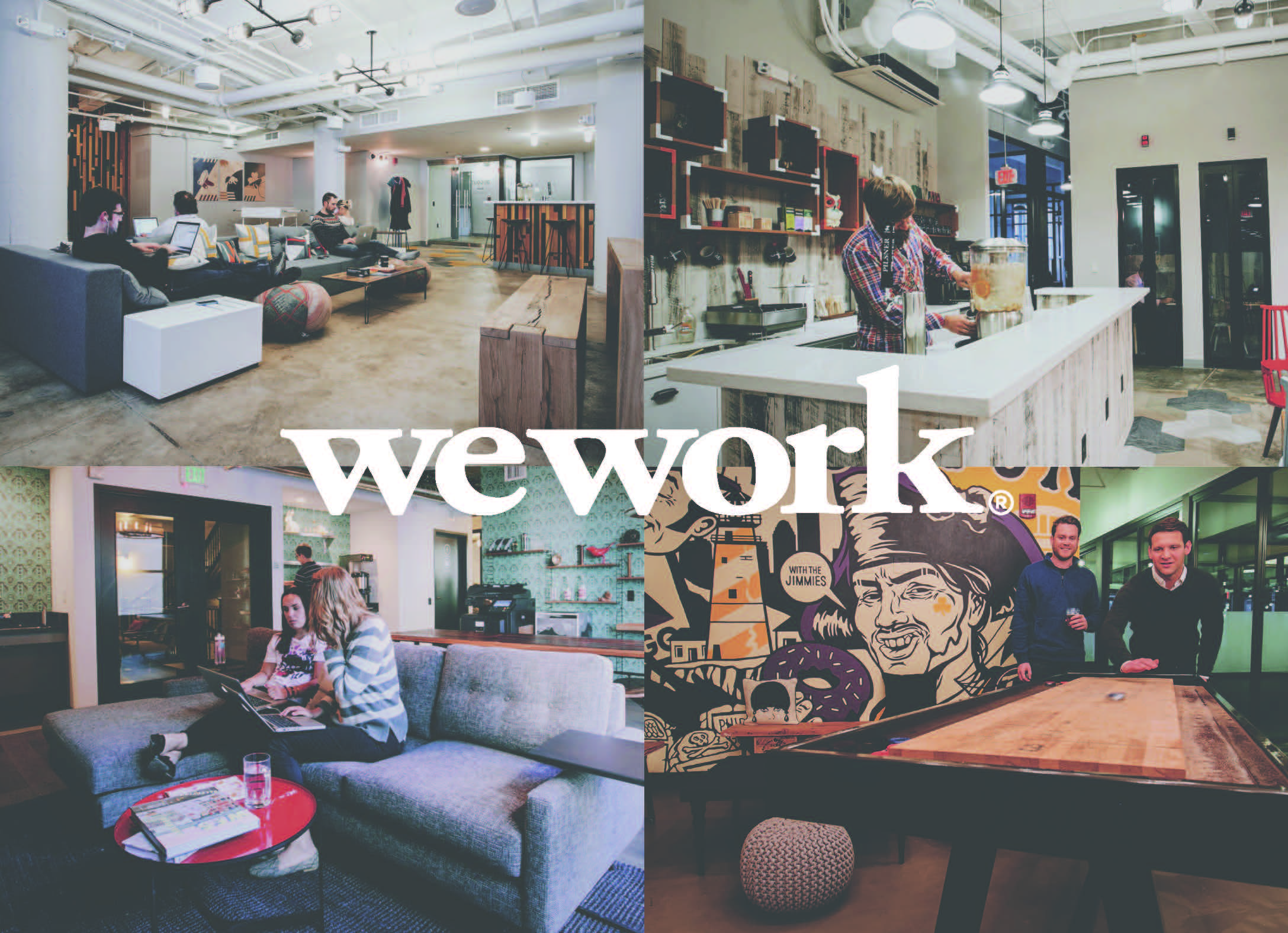Latest News
Startup WeWork Raises $ 1 Billion from Soft Bank


WeWork raised an additional $ 1 Billion in convertible debt from Soft Bank, the New York based company continues to grow rapidly. Their revenue doubled to a hefty $ 712 million according to the newly released financial information on Thursday.
WeWork is an American company that provides shared work spaces, tech startup communities, and various other services for startups, freelancers, small businesses and large enterprises. Founded by Adam Neumann and Miguel Mckelvey in 2010, it is one of the world’s most valuable startups as it is valued around $ 20 billion.
The startup WeWork has been piling up losses. During the first half of the year, the loss widened to $ 723 million as the company continued to expand, opened new spaces and spent more money to market them. The losses increased while the revenue for the first half of the year has more than doubled to a whopping $ 763.8 million.
The unusual mechanism of piling up losses gives WeWork an immediate cash injection as it continues to funnel money into expanding its shared office business globally.
The Chief Financial Officer, Artie Minson, in a recent interview described the financing as “the ability for us to opportunistically add a billion dollars to the balance sheet.” Minson further added, WeWork has around $ 4 billion in cash and commitments.
Due to being a private company WeWork has no obligation to publicly disclose its financial status. It released the figures to the media in conjunction with a periodic update to bond investors.
The latest funding from its investor Soft Bank, comes in the form of a subordinated convertible note that is structured so that the Japanese company has an edge in the next fundraising round. Soft Bank, has already invested $ 4.4 billion in equity funding in WeWork last August.
“There is no investor closer to us than Soft Bank and it was an opportunistic financing that we were able to do,” Minson said in an interview.
WeWork has more than 5,000 employees in over 280 locations, spread across 77 cities in 23 countries around the world including India, United Kingdom, Japan, Singapore, Australia, Argentina, Germany and Brazil.

Latest News
Peak XV New Funds: $1.3B Commitment for India Startup Surge 2026

Peak XV Partners has launched three new funds totaling $1.3 billion, targeting India’s booming startup ecosystem. The lineup features the $600M Surge fund (8th edition) for early-stage ventures, a $300M Growth Fund for Series B+ scaling, and a $400M Acceleration Fund for rapid portfolio expansion. This commitment arrives as India’s VC inflows rebound, with AI and fintech leading 2026 trends.
These funds build on Peak XV’s legacy of backing unicorns like Zomato and Pine Labs, offering founders capital plus strategic guidance amid post-winter recovery. Early-stage deals surged 20% last year per Tracxn, positioning Peak XV to fuel the next wave of innovation in SaaS, climate tech, and consumer plays.
For startups eyeing Peak XV new funds or Surge fund 2026 applications, this signals prime opportunities. Investors and marketers should watch for deployment updates India remains a global VC hotspot.
Latest News
D2C Brand Neeman’s Raises $4 Million for Tier 2/3 Store Expansion & Eco-Friendly Shoes

Hyderabad, January 13, 2026 Neeman’s, India’s leading D2C footwear brand famed for sustainable shoes and patented PIXLL® technology, has raised $4 million from existing investors. This funding boosts its cumulative capital past $10 million since 2015, with a post-money valuation nearing $50 million. CEO Vijay Chahoria emphasized offline retail as the “next frontier,” planning 50+ new stores in Tier 2/3 cities like Jaipur and Lucknow to blend eco-friendly innovation with hands-on customer experiences.
In India’s booming D2C ecosystem where footwear sales hit ₹1.2 lakh crore in 2025 Neeman’s targets hybrid retail amid high online CAC and 25-30% returns. Backed by vegan, machine-washable shoes priced ₹2,000-4,000, the brand leverages PIXLL® (5x more breathable than leather) for carbon-neutral comfort. Recent 5x revenue growth to ₹100 crore ARR, 1M+ pairs sold via Myntra and stores, and awards at India D2C Summit 2025 position it ahead of rivals like Paaduks.
Neeman’s offline expansion India eyes the $15B sustainable footwear market by 2028, fueled by PLI schemes, Gen Z’s 70% eco-preference (Nielsen), and Southeast Asia exports. Challenges like real estate costs are offset by data-driven inventory and omnichannel QR tech. Watch for Q1 2026 launches in Hyderabad and Bengaluru redefining D2C success through authentic, “Wear the Change” branding.
Latest News
Centre Mulls Revoking X’s Safe Harbour Over Grok Misuse

The Centre is weighing the option of revoking X’s safe harbour status in India after its AI chatbot Grok was allegedly misused to generate and circulate obscene and sexually explicit content, including material seemingly involving minors. The IT Ministry has already issued a notice to X, directing the platform to remove unlawful content, fix Grok’s safeguards, act against violators, and submit a detailed compliance report within a tight deadline. If the government finds X’s response inadequate, it could argue that the platform has failed to meet due‑diligence standards under Indian law, opening the door to harsher action.
Under Section 79 of the IT Act, safe harbour protects intermediaries like X from being held directly liable for user‑generated content, provided they follow due‑diligence rules and promptly act on legal takedown orders. Revoking this protection would mean X and its officers could be exposed to criminal and civil liability for obscene, unlawful, or harmful content that remains on the platform, including AI‑generated images from Grok. This prospect significantly raises X’s compliance risk in India and could force tighter moderation, stricter AI controls, and more aggressive removal of flagged posts.
The Grok episode also spotlights the regulatory grey zone around generative AI, where tools can create harmful content at scale even without traditional user uploads. Policymakers are increasingly questioning whether AI outputs should still enjoy the same intermediary protections as conventional user posts, especially when they involve women and children. How the government ultimately proceeds against X over Grok misuse could set a precedent for AI accountability, platform responsibility, and safe harbour interpretation in India’s fast‑evolving digital ecosystem.












Boiwmzvl
May 23, 2025 at 2:18 pm
Explore the ranked best online casinos of 2025. Compare bonuses, game selections, and trustworthiness of top platforms for secure and rewarding gameplaycasino.
ixat9
June 6, 2025 at 6:34 am
can you get clomid without a prescription where can i get cheap clomid pill order generic clomiphene without rxРіРѕРІРѕСЂРёС‚: clomiphene chance of twins get cheap clomiphene without insurance clomiphene medication cost order generic clomid online
J88
November 5, 2025 at 9:38 am
Đến với J88, bạn sẽ được trải nghiệm dịch vụ cá cược chuyên nghiệp cùng hàng ngàn sự kiện khuyến mãi độc quyền.
站群程序
November 9, 2025 at 10:11 pm
采用高效谷歌站群策略,快速提升网站在搜索引擎中的可见性与权重。谷歌站群
MM88
November 10, 2025 at 12:12 am
Khám phá thế giới giải trí trực tuyến đỉnh cao tại MM88, nơi mang đến những trải nghiệm cá cược thể thao và casino sống động.
站群程序
November 12, 2025 at 4:09 am
搭载智能站群程序,自动化搭建与管理,为SEO项目提供核心驱动力。站群程序
MM88
November 13, 2025 at 1:40 am
Với giao diện mượt mà và ưu đãi hấp dẫn, MM88 là lựa chọn lý tưởng cho các tín đồ giải trí trực tuyến.
iwin
November 18, 2025 at 3:45 pm
iwin – nền tảng game bài đổi thưởng uy tín, nơi bạn có thể thử vận may và tận hưởng nhiều tựa game hấp
GO88
November 24, 2025 at 5:14 pm
Tham gia cộng đồng game thủ tại Go88 để trải nghiệm các trò chơi bài, poker phổ biến nhất hiện nay.
online Gambling
December 19, 2025 at 5:57 am
online Gambling online Gambling